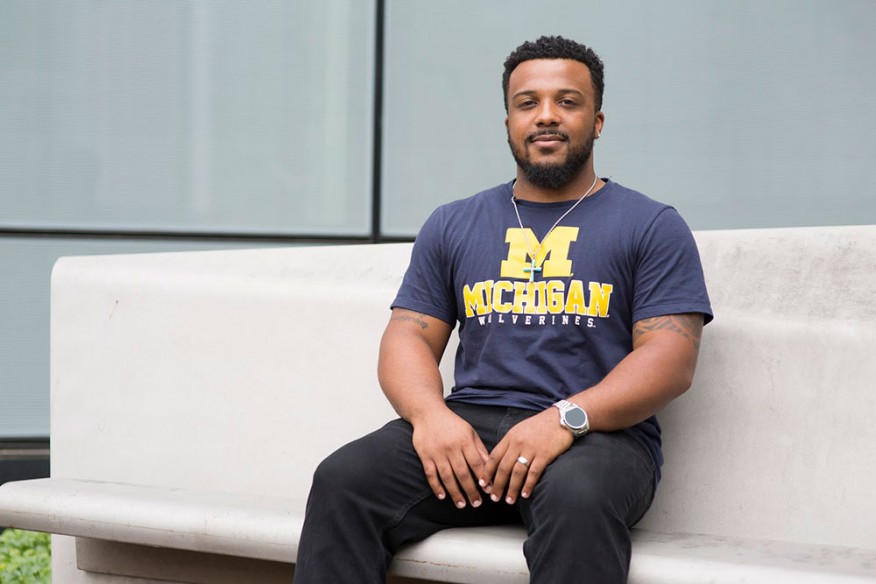When Ed-Dee Williams applied to the U-M School of Social Work Joint PhD Program in Social Work and Social Science, he sought to study mental health in black boys. "My research focuses on how black boys understand and communicate mental health needs as well as the intersection of medicalization and criminalization of black boys in institutional settings." Williams wants to bridge the gap between what social workers learn from data and what practitioners in the field discover by either working with this population of boys or creating policy. The gap between the frontline social worker and research, especially in child welfare, is significant, he says.
There were afew faculty members at Michigan Social Work, as well as in other departments conducting research on black men and boys, and Williams felt the joint program would be a good fit for his research endeavors. “It’s hard to find an advisor who does the exact same research that you want to do,” Williams said. He found the key was working with an advisor who teaches students skills through their research but also mentors them on the path to conducting their individual research.
“I think there’s a tricky place in there because you can get lost doing other people’s research,” Williams said, “and that’s when you have to have a great advisor. Someone who really makes sure that you’re getting what you need, but not getting lost so much in theirs.” Williams found just such an advisor in Professor Jamie Mitchell. Mitchell has completed research on men but not in William's specific area of interest on black boys. "Jamie has given me technical feedback on my research topic and process, reviewed my draft writing and provided me with valuable introductions to colleagues in the field," Williams said.
Over the course of their work together, Williams and Mitchell often talk about his personal research goals, the gap between the frontline social worker and research and what he wants to get out of the relationship. Mitchell connected Williams with a community partner in Toledo who works with youth from juvenile justice programs as well as youth experiencing mental health conditions.
“This project is mine, essentially,” Williams said. “She gave me this connection, I fostered it, I communicated with her and now I have a place where I can collect my own data.” According to Mitchell, Williams is developing a set of skills that allow him to apply rigorous scientific methods in hopes of answering important questions for policymakers and practitioners in the field.
In Williams experience, the search for an advisor didn’t end up being about finding the perfect advisor; it was about finding an advisor, who could mentor him and teach him the skills to research independently. “ At Michigan Social Work, I found an intersection between all these different areas of research that people were doing that would help me create a unique area to study mental health in black boys,” Williams said. With Mitchell as his advisor, he certainly accomplished that.
